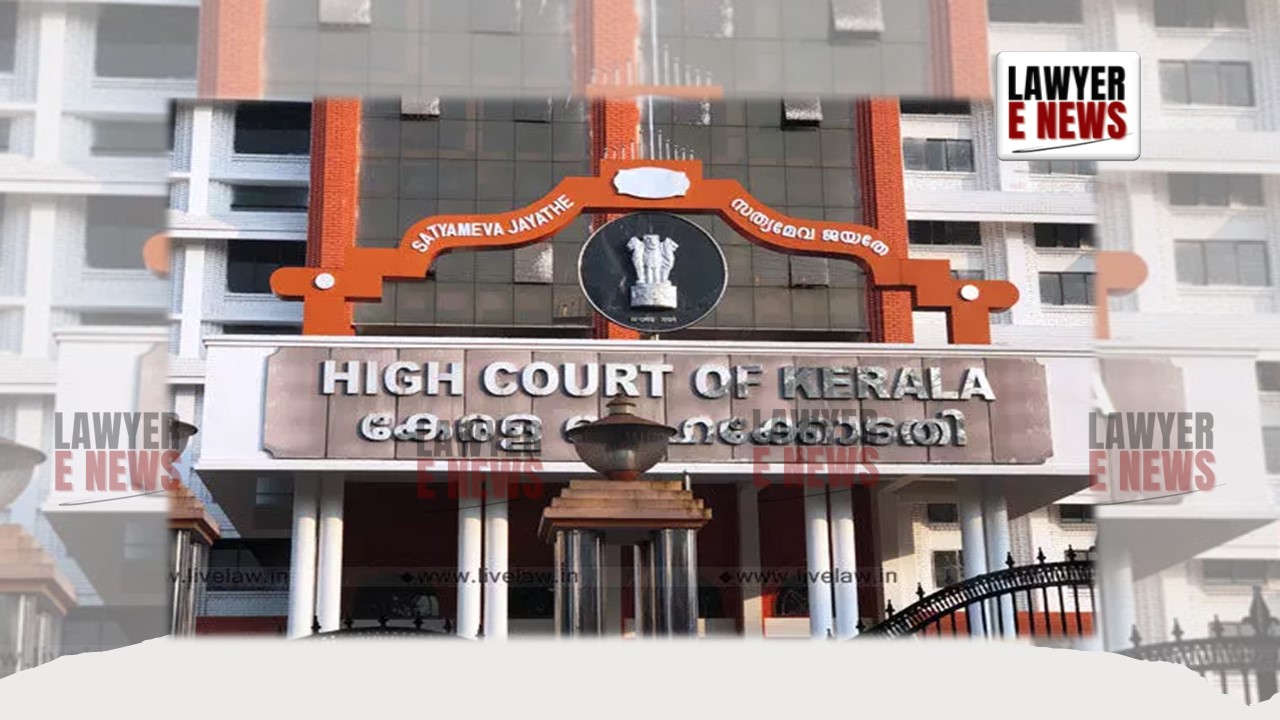-
by Admin
15 February 2026 5:35 AM



Kerala High Court comprising Chief Justice Nitin Jamdar and Justice S. Manu dismissed an appeal filed by the Secretary of the Trichur Tennis Trust. The appellant challenged a Single Judge’s decision upholding the Kerala State Electricity Board’s (KSEB) 12-month assessment for unauthorized electricity usage under Section 126(5) of the Electricity Act, 2003. The Court reiterated that when the start date of unauthorized consumption is unascertainable, the assessment must default to the 12-month period immediately preceding the date of inspection, placing the burden on the consumer to establish a shorter period.
The case arose from a surprise inspection conducted by KSEB's Anti Power Theft Squad (APTS) at the Trichur Tennis Trust premises on October 9, 2014. The inspection revealed an additional unauthorized load of 50 KW that had been connected without the necessary approval. Following this discovery, KSEB issued a provisional bill to the Trust for ₹13,49,366, later confirmed through a final assessment order.
The Trichur Tennis Trust challenged this assessment before the Kerala State Electricity Appellate Authority, which reduced the assessment period to four months (from June 16, 2014, to October 9, 2014), on the assumption that unauthorized use began only when the appellant applied for an additional load in June 2014. KSEB, however, contended that Section 126(5) requires a 12-month default period when the start date of unauthorized use is uncertain. The Single Judge sided with KSEB, restoring the original 12-month assessment, prompting the Trust to appeal to the division bench.
The High Court’s analysis focused on the interpretation of Section 126(5) of the Electricity Act, 2003, which mandates a 12-month assessment period if the exact starting point of unauthorized consumption cannot be ascertained. Chief Justice Nitin Jamdar and Justice S. Manu emphasized that the consumer bears the burden of proving the actual duration of unauthorized use if they seek to challenge the default 12-month assessment.
The court stated, "Section 126(5) clearly envisions that if the period during which unauthorized use of electricity has occurred is unascertainable, the assessment shall default to the 12-month period immediately preceding the inspection. It is incumbent on the consumer to provide evidence of a shorter period if they contest this assessment."
Erroneous Exercise of Jurisdiction by Appellate Authority
The court found that the Appellate Authority’s decision to limit the assessment period was based on assumptions rather than factual findings. The authority had incorrectly presumed that unauthorized consumption began only after the Trust applied for additional load in June 2014, without any concrete evidence to substantiate this.
The bench noted, “The Appellate Authority did not establish a firm factual basis regarding the actual commencement date of unauthorized consumption. Without such a jurisdictional finding, the reduction of the assessment period constituted an erroneous exercise of jurisdiction.”
The Court further stated that merely applying for an additional load on a specific date does not suffice as proof that unauthorized use began on that date. In the absence of concrete evidence, the assessment must adhere to the 12-month default period prescribed by law.
The judgment underscores two key legal principles:
Burden of Proof on Consumer: When disputing a 12-month assessment for unauthorized electricity use, the consumer must produce evidence showing a shorter duration. Unsupported assertions or application dates do not satisfy this burden.
Limited Jurisdiction of Appellate Authority: The Appellate Authority cannot alter the assessment period under Section 126(5) without concrete findings on the commencement date of unauthorized usage. Any assumption-based interference constitutes an overreach of its jurisdiction.
Appeal Dismissed, 12-Month Assessment Period Upheld
The Kerala High Court dismissed the appeal, affirming the Single Judge’s decision to reinstate the KSEB’s original 12-month assessment. The Court ruled that the Appellate Authority’s interference with the assessment was unjustified and unsupported by evidence, rendering its order legally unsustainable.
Date of Decision: October 16, 2024
Secretary, Trichur Tennis Trust v. Kerala State Electricity Board Limited & Others
